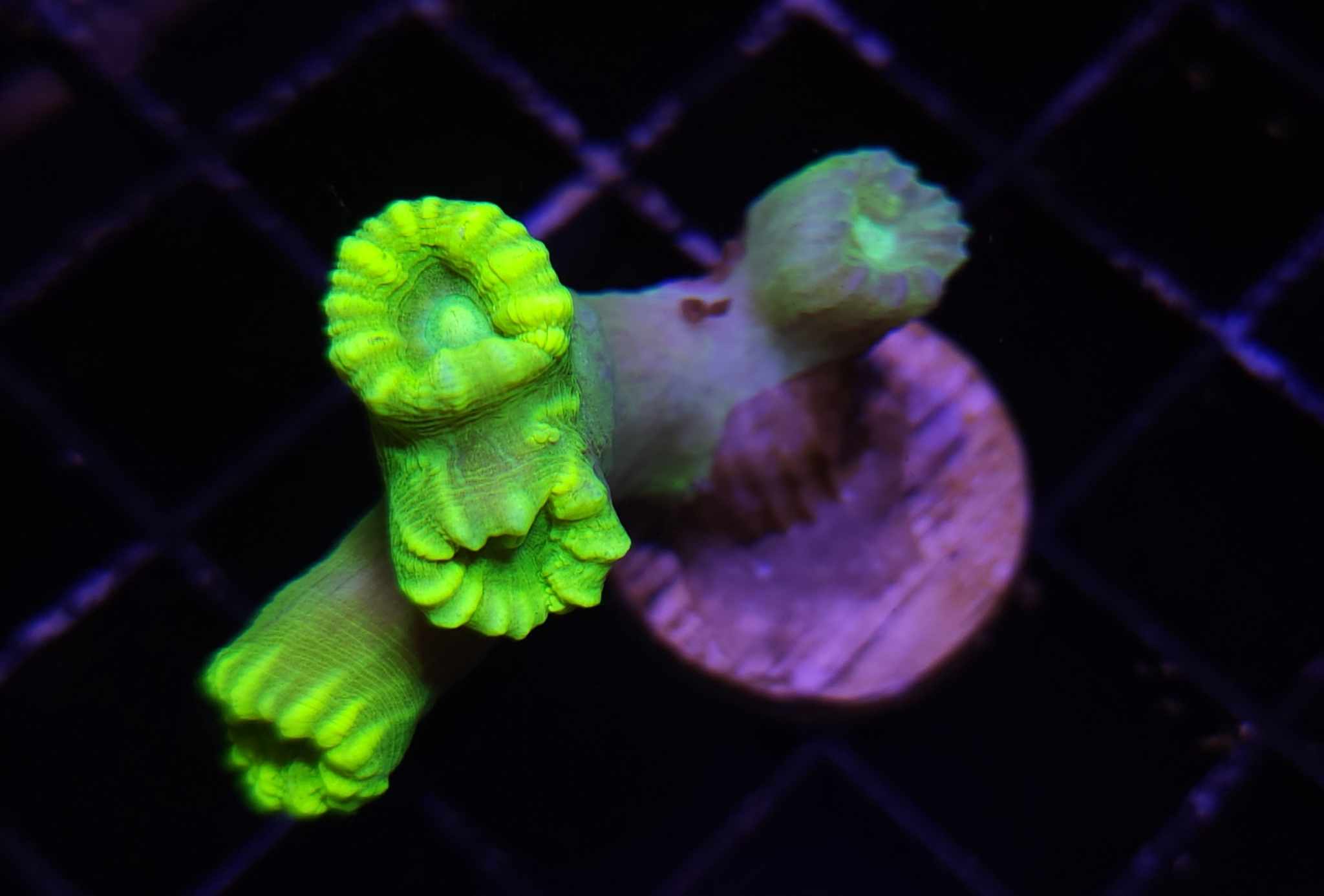Caulastrea furcata

Caulastrea furcata are commonly known as Candy Cane Coral, Trumpet Coral, and Bullseye Coral in the aquarium industry.
They are branching corals with the top of each branch having a single or double head, with one or more mouths.
This species gets its name from the septa (teeth on the inside of the corallite or polyp wall) that protrude to just under the flesh of the polyp, giving it a striped appearance that resembles a peppermint candy cane.
The natural colours of Caulastrea furcata are brown, yellow, burgundy, blue or green with a lighter or darker green oral disc and they usually have striations. Some of the aquacultured colours are blue with green centers, yellow with green centers, and almost a burgundy red with a green center.
In the wild, they are primarily found on protected reef slopes with a sandy substrate in shallow, bright water with surging water flow.
Basic Water Parameters
pH
8.0 to 8.3
Salinity
34 - 36ppt
Temperature
24.0 - 26.0 Celsius
Husbandry Requirements
Lighiting
110-175 PAR
Flow
Some turbulence required
Aggressiveness
Limited ability to damage other corals.
Acclimation Guide
- It is highly recommended to acclimate all corals to a new environment to prevent shocking corals.
- Place the corals in the water from the packing bags and slowly add the water from new environment (Dripping method is recommended).
- Use the water parameter above as a guide.
- When the vessel becomes full , replace the water with the new environment water by a small amount at a time.
- Ensure the water temperature matches with the new environment’s water.
- After the corals have spent adequate time in the acclimation water, gently place the corals to a new environment.
- It is recommended to place new corals under lower light intensity than usually required. Once corals show no signs of stress, it can be moved to higher lighting area gradually.”

